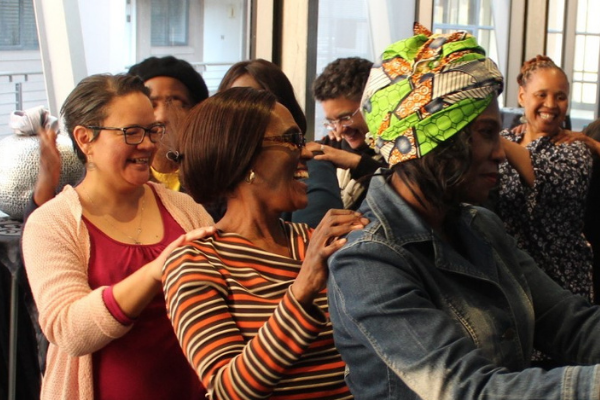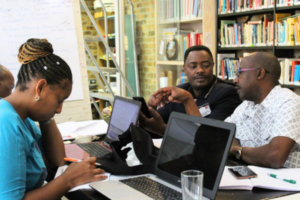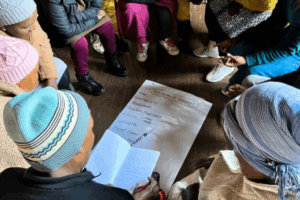August is women’s month in South Africa, a time when gender equality and women’s empowerment take centre stage. The Labour Research Service stands with worker organisations that work tirelessly to advance women’s right to decent work. We hope these resources will assist your efforts to promote equity in the workplace and address the entrenched misconceptions about the role of women workers.
1. Guide to bargaining for gender equity
Collective bargaining is a tool for addressing structural gender inequities in the trade union and workplace. Our guide to bargaining for gender equity contains the key terms to know, specific bargaining demands for gender equity and a guide to the bargaining process.
2. Possible trade union demands for mainstreaming gender in trade agreements
To achieve equity, equality, non-discrimination and women empowerment in the African Continental Free Trade Area (AfCFTA) agreement, trade unions should consider these five demands.
3. The fourth industrial revolution risks leaving women behind
South Africa’s labour market is more favourable to men than women, and the fourth industrial revolution may widen the gap.
4. Workplace rights belong to everyone
The LRS guide to negotiating for inclusivity and against discrimination is for working class leaders that share a desire to protect and advance the right to equality for workers who are LGBTQ+.
5. How far have we come in promoting working women's rights to gender equality and decent work?
Devalued, invisible, exploited and undermined – these are often the terms used to describe the situation of working women. This article looks at the developments that have occurred over the past few years to change the situation for working women in South Africa and the challenges that continue to undermine women’s right to decent work.
6. Putting union gender equality policy into practice in South Africa - The role of transformational leadership
This report explores the disconnect between trade union labour policy and practice in transforming gender inequalities in workplaces and the broader community. The report also examines how to refine new strategies to close the gap between policy and practice.
7. Transformative women's leadership in the time of covid-19 pandemic
“The pandemic has made us look for alternative models of leadership to deal with life-threatening challenges in styles that aren’t militaristic, patriarchal and non-democratic,” says Crecentia Mofokeng, the Regional Representative for Africa at Building and Woodworkers’ International. Read the interview.
8. Organising and empowering young women workers
Our resources for addressing key workplace issues for young women workers will benefit the union that wants to tap into the creativity and energy that young women members can bring to the organisation. View here.
9. Ending gender-based violence in the health sector
Healthcare workers are at risk in a society that does not value the work of caring. This article shows how trade unions organising in the health sector can put care work in the spotlight through leading social action initiatives for ending violence in health facilities.
10. A reflection on old methods and new lessons for ending school-related gender-based violence in Africa
It’s possible to transform the norms, policies and practices which perpetuate gender-based violence in educational settings. Nina Benjamin takes stock of her role in supporting teacher trade unions in sub-Saharan Africa to create safe schools.
Introduction to Bargaining for Gender Equity booklet
Get PDF | Bargaining for Gender Equity booklet







